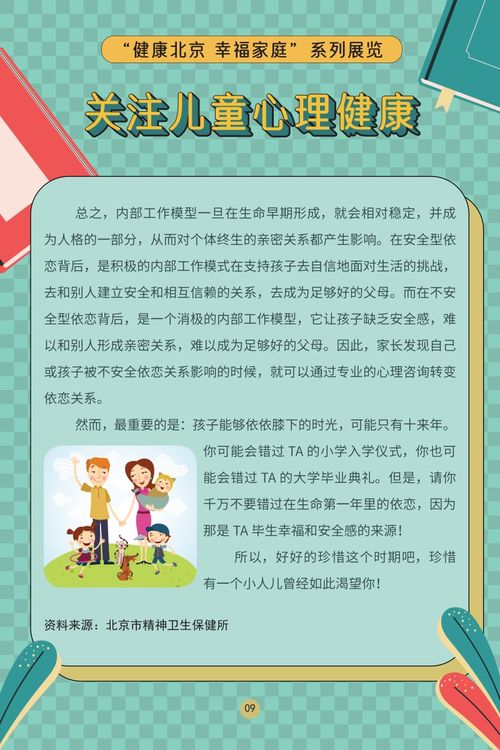留守儿童心理健康教案
Title: Developing a Comprehensive Child Mental Health Curriculum
Introduction:
Ensuring the mental wellbeing of children is paramount for their overall development and success in life. A comprehensive child mental health curriculum not only equips educators with the tools to identify early signs of mental health issues but also provides strategies to promote resilience and emotional intelligence in children. Here's a structured outline for designing such a curriculum:
1. Understanding Child Development:
Overview of cognitive, emotional, and social development stages in children.
Identification of typical developmental milestones.
Recognizing factors influencing child development such as genetics, environment, and experiences.
2. Mental Health Awareness:
Defining mental health and its importance in children.
Explaining common mental health disorders in children (e.g., anxiety, depression, ADHD).
Breaking stigmas surrounding mental health issues.
3. Identifying Signs of Mental Health Concerns:
Training educators to recognize signs of mental health issues in children.
Providing case studies and scenarios for practical application.
Collaborating with mental health professionals for early intervention strategies.
4. Promoting Emotional Intelligence:
Teaching children to recognize and regulate their emotions.
Implementing activities to enhance empathy and social skills.
Encouraging open communication and expression of feelings.
5. Building Resilience:
Strategies for coping with stress and adversity.
Encouraging problemsolving and decisionmaking skills.
Fostering a growth mindset and positive selftalk.
6. Creating a Supportive Environment:
Establishing a culture of inclusivity and acceptance.
Implementing antibullying policies and conflict resolution techniques.
Providing resources for children and families in need of support.
7. Collaboration with Parents and Guardians:
Involving parents in understanding and supporting their child's mental health.
Conducting workshops and seminars on parenting techniques.
Facilitating open communication between educators, parents, and mental health professionals.

8. Educator SelfCare:
Stress management techniques for educators.
Providing resources for educator wellbeing and mental health support.
Encouraging selfreflection and seeking professional development opportunities.
Conclusion:
A welldesigned child mental health curriculum equips educators with the knowledge and skills to support the holistic development of children. By fostering emotional intelligence, resilience, and a supportive environment, we can nurture mentally healthy individuals who thrive academically, socially, and emotionally.
This comprehensive approach not only benefits the children but also contributes to building a more compassionate and understanding society. Let's prioritize the mental wellbeing of our children and empower them to reach their full potential.








